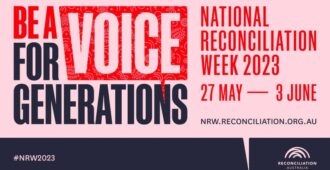

From chronic disease risk in children, to healthy home lives for teenagers, researchers used the wealth of data in SEARCH – the Study of Environment on Aboriginal Resilience and Child Health – to explore Aboriginal health this past year.
SEARCH is Australia’s largest long-term study of the health and wellbeing of Aboriginal children living in urban areas, and is an active partnership between Aboriginal Community Controlled Health Services (ACCHS), the Sax Institute and researchers.
Here are some of the research highlights from 2021:
Researchers found low chronic disease risk in NSW Aboriginal children
A first-of-its-kind study examined chronic disease risk of Aboriginal children in NSW, with researchers from the Australian National University finding that the majority of children had healthy cholesterol levels and were at low risk of chronic disease.
Researchers analysed glucose and lipid levels that reflect chronic disease risk among 507 children between the ages of 5 and 19 who are participating in SEARCH.
Cholesterol can give an indication of the risk of chronic disease, such as cardiovascular disease. BMI is also a risk factor for chronic disease.
The study found that of the 442 children who had total blood cholesterol levels recorded, 43.9% had normal, 56.1% had borderline and no individuals had high total cholesterol. However, borderline cholesterol was significantly higher for those with obesity compared to those with normal weight.
It was also found that overall, almost half (46.8%) of the children had a normal BMI, while 53.3% had overweight or obesity (22.5% overweight and 30.8% with obesity).
The research findings are significant because they suggest a low risk of chronic disease within the cohort – reinforcing that current screening for chronic disease risk from the age of 18 remains appropriate. The paper also notes the high prevalence of overweight and obesity within the cohort.
A healthy home life could help Aboriginal teens stay smoke-free
For Aboriginal teens, strong social connections and good mental health could be the key to staying smoke-free, according to 2021 research based on the SEARCH study.
Researchers from the University of Melbourne and the Sax Institute analysed data from 106 Aboriginal adolescents aged between 12 and 17, and their caregivers, from four Aboriginal Community Controlled Health Services in urban New South Wales.
They found that 83% of adolescents had never smoked regularly, and 60% lived in smoke‐free homes. Most tellingly, participants were significantly more likely to have never smoked regularly if they had: good mental health, good family relationships, a mother as primary caregiver, stable housing, no history of using alcohol, were not sexually active, and had no criminal justice interactions.
The study concluded that promoting good mental health and strengthening social connections could prevent future teens from picking up smoking.
Smoking causes half of all deaths in older Indigenous Australians, study finds
Important new research using data from the Sax Institute’s 45 and Up Study revealed the devastating impact of smoking on the mortality rates of Aboriginal and Torres Strait Islander people.
The study provides the first direct estimates of deaths attributed to smoking in this community, finding that it causes around half of all deaths in First Nations people over the age of 45. Over the past decade, this represents over 10,000 deaths that could have been avoided.
The researchers from the Australian National University calculated that Aboriginal and Torres Strait Islander people who never smoked were twice as likely to reach the age of 75 compared with smokers, and on average enjoyed an extra decade of life. Overall, smoking accounts for a third of all deaths among all Aboriginal and Torres Strait Islander people of all ages, the data shows.
Although smoking prevalence is dropping in Aboriginal and Torres Strait Islander communities, experts are calling for more action to reduce smoking.
Find out more
- Find out how SEARCH is contributing to new cancer research with the Cancer and Healthy Ageing in Aboriginal NSW Older Generations Study
- Discover more about SEARCH and its community-led model of research
- If you’d like to stay up-to-date on SEARCH, sign up for our newsletter




